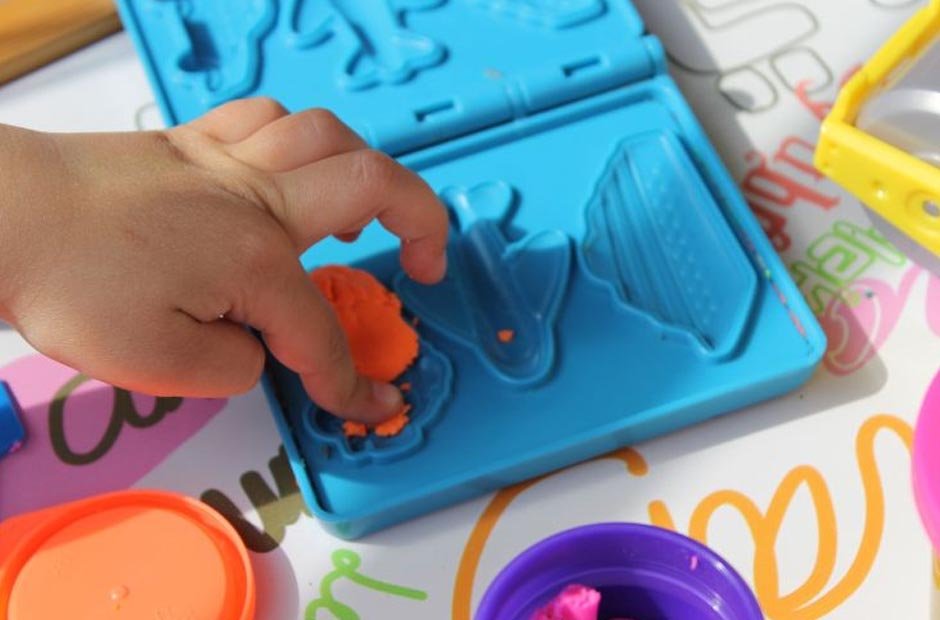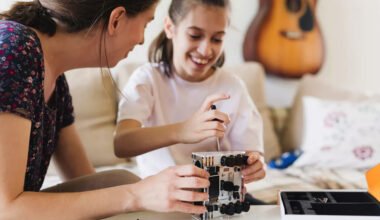Playdough is more than just a good time for kids; it’s a creative learning tool that helps kids grow! Playdough play is even more beneficial when combined with cutters and stamps. These no-fuss tools can transform routine play into an opportunity for learning, exploring, and growing.
As kids roll, press, and form, they develop essential skills without even knowing it. These tools can help parents and educators do a little to encourage the development of their learning in a fun way.
Promotes Pre-Reading Skills
Playdough cutters and alphabet letter stamps can also be used to play, learn, and playfully practice basic learning priorities. They can be cut or stamped into shapes and numbers or made into patterns as children learn.
When they use tools like alphabet letter stamps, children begin to notice letters and sounds. That’s a fun, no-pressure way to start building reading and language skills. Parents can require children to stamp their names, spell simple words, rhyme, or match letters. These play-and-discovery-focused small activities build toward early literacy.
Enhances Fine Motor Skills
Playdough cutters and stamps can also help children develop the small muscles in their hands and fingers. When little ones press down on the cutters or push stamps into the squishy dough, they’re also building the hand strength they need for day-to-day tasks at school or home.
These types of actions between the eyes and hands are good for manual ability training in early childhood education. The differences in shapes and movement patterns also contribute to the fine-tuning of hand movements. This is a fun game for kids to use to develop their physical abilities. Over time, these exercises make them better able to grasp pencils, scissors, and other tools.
Enhances Creativity and Imagination Skills
Playdough play is the first step towards endless creative play. Children can use cutters and stamps to create shapes, animals, objects, and even simple scenes. This type of imaginative play permits them to work through thoughts and feelings in a hands-on fashion.
They may make a garden, a city, or a favorite animal out of dough and stamps. This kind of work encourages children to think creatively and become fluent storytellers. Giving children the freedom to explore their ideas creates confidence in their creative decision-making.
Good for Social and Emotional Development
When kids play with other kids at that playdough table and use all those playdough tools, they are learning to take turns, share, and communicate. These social skills are fundamental to developing healthy relationships. Collaborating to make something or borrowing stamps fosters teamwork and problem-solving skills.
Children also pick up patience while waiting for a turn or making another attempt if something doesn’t work as hoped. Accomplishing a project or learning a new skill release emotional rewards that have a positive impact on their self-esteem. And there’s the emotional aspect: playing with playdough in groups provides a safe environment where children can express their emotions and learn to play alongside others.
Fosters Cognitive Development and Problem-Solving
More than just a fun time! These playdough cutters and stamps have a language development spin that will blow your mind! While children test different shapes of cutters and stamps, they’re engaged in problem-solving. They’ll experiment to see which cutter best represents a given object, or which stamp can be pieced together with others to form more complex scenes. This process taps into critical and spatial thinking, as well as cause and effect.
Yet these easy activities provide important building blocks in the future for academic success; they teach children to think logically, to plan and test their ideas, and to refine their approaches in response to results. The lack of anxiety about “getting it wrong” also encourages an experimental and exploratory attitude.
Language and communication
By verbalizing what they are building, children use new words and put together sentences. Playdough play frequently leads to discussions about colors, forms, and actions.
When using alphabet letter stamps, kids can spell out simple words with the stamps or say the letters as the stamps are pressed into the dough. This kind of play contributes to a more language-enriched surrounding, which further encourages the development of vocabulary. When you ask kids about what they built, it allows them to think and respond carefully. These conversations help with listening and speaking.
Playdough cutters and alphabet letter stamps are good for much more than making your dough squishy. They nurture children’s growth in many dimensions, like physical, social, creative, and intellectual. Whether it is working on hand strength, accessing imagination, learning letters, or making new friends, these simple tools offer so much value.
The alphabet letter stamps and cutters let kids put their twist on learning to write and recognize letters. Inspiring kids to play in ways that correspond with their natural development is an easy way to support healthy learning and development. With only a small lump of dough and a few playthings, a child’s world enlarges in some very real ways.



